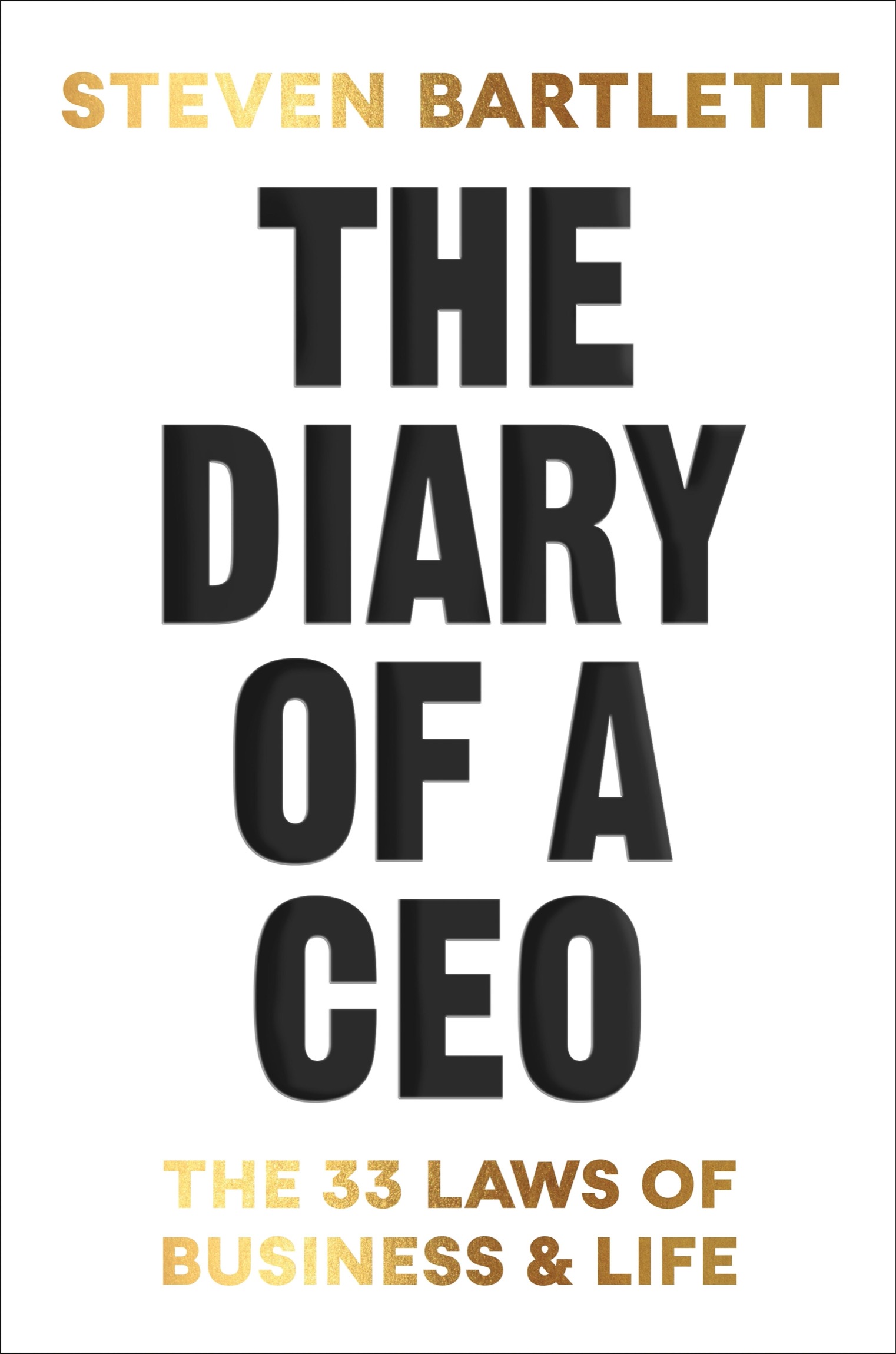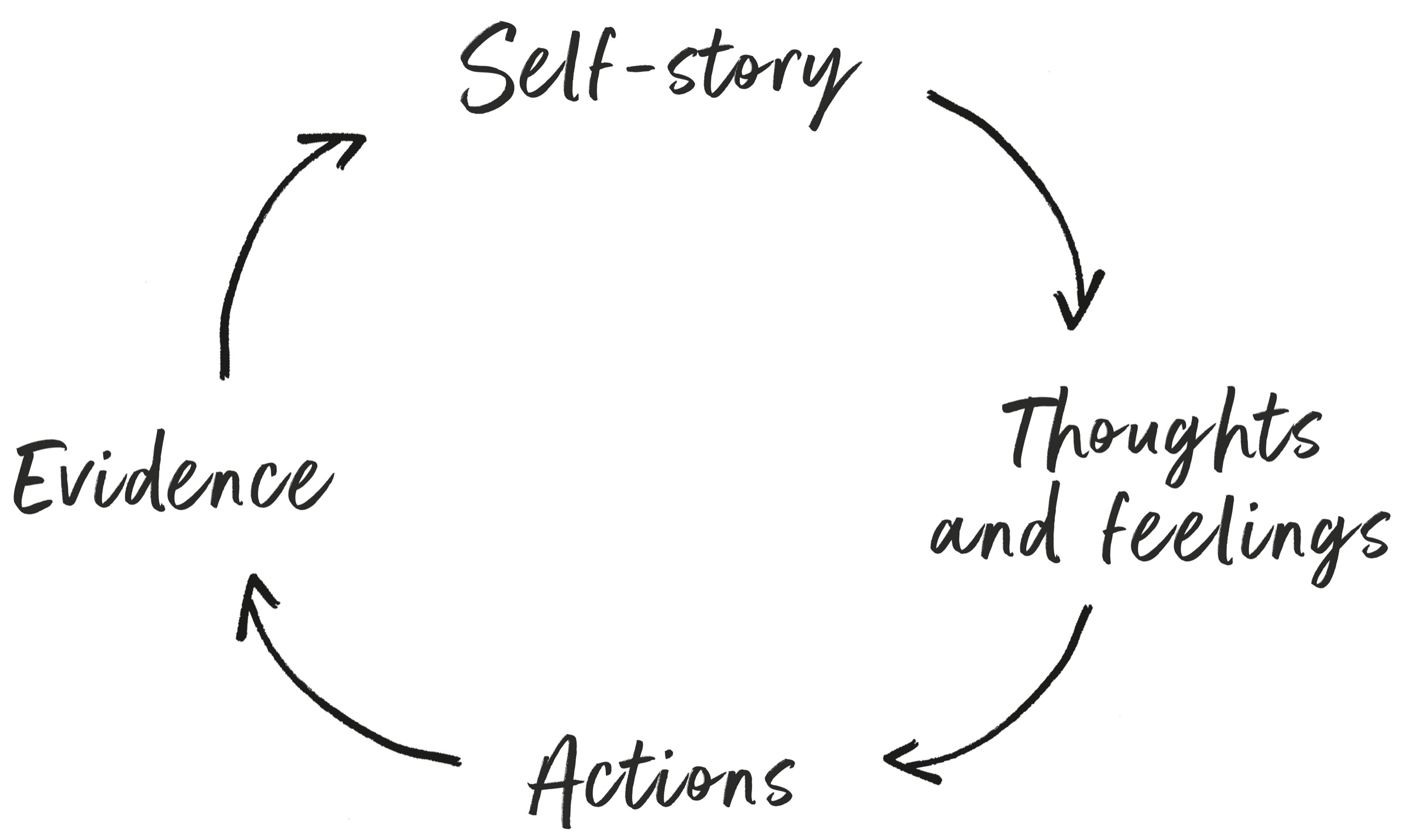The Diary of a CEO - Steven Bartlett

## Metadata
- Author: **Steven Bartlett**
- Full Title: The Diary of a CEO
- Category: #books
## Highlights
- THE FIVE BUCKETS
1. What you know (your knowledge)
2. What you can do (your skills)
3. Who you know (your network)
4. What you have (your resources)
5. What the world thinks of you (your reputation) ([View Highlight](https://read.readwise.io/read/01k2rv4ppb9dmfbmyxthm6d2e6))
- He was telling me to focus on filling my own buckets, because someone with full buckets can positively bend the world in any way he or she desires. ([View Highlight](https://read.readwise.io/read/01k2rv7kejc17ezktetzm3d14y))
-  ([View Highlight](https://read.readwise.io/read/01k2yzrw6xh7180czgn3v63pww))
- We usually start our professional life acquiring **knowledge** (school, university, etc.), and when this knowledge is applied, we call it a **skill**. When you have knowledge and skills you become professionally valuable to others and your **network** grows. Consequently, when you have knowledge, skills and a network, your access to **resources** expands, and once you have knowledge, skills, a valuable network and resources, you will undoubtedly earn a **reputation**. ([View Highlight](https://read.readwise.io/read/01k2yzs5nh7v015hgdcq200982))
- The late spiritual leader Yogi Bhajan once said, ‘If you want to learn something, read about it. If you want to understand something, write about it. If you want to master something, teach it.’ ([View Highlight](https://read.readwise.io/read/01k2yzwvk20kqcp2r4nan13qv4))
- Being able to simplify an idea and successfully share it with others is both the path to understanding it and the proof that you do. One of the ways we mask our lack of understanding of any idea is by using more words, bigger words and less necessary words. ([View Highlight](https://read.readwise.io/read/01k2yzyje9k81kgempt8szea13))
- ‘I couldn’t reduce it to the freshman level. That means we really don’t understand it.’
Richard Feynman ([View Highlight](https://read.readwise.io/read/01k2yzyq6fw89cgbsk3729yn2t))
- The Feynman technique follows a few key steps, which I’ve simplified and updated based on my own learning experience:
STEP 1: LEARN
First you must identify the topic you want to understand, research it thoroughly and grasp it from every direction.
STEP 2: TEACH IT TO A CHILD
Secondly, you should write the idea down as if you were teaching it to a child; use simple words, fewer words and simple concepts.
STEP 3: SHARE IT
Convey your idea to others; post it online, post it on your blog, share it on stage or even at the dinner table. Choose any medium where you’ll get clear feedback.
STEP 4: REVIEW
Review the feedback; did people understand the concept from your explanation? Can they explain it to you after you’ve explained it to them? If not, go back to step 1; if they did, move on. ([View Highlight](https://read.readwise.io/read/01k2yzz76tt7205aevz8trqq1x))
- ‘The person who learns the most in any classroom is the teacher.’
James Clear ([View Highlight](https://read.readwise.io/read/01k2z000g61fmngsa7s4d8z64v))
- Healthy conflict strengthens relationships because those involved are working against a problem; unhealthy conflict weakens a relationship because those involved are working against each other. ([View Highlight](https://read.readwise.io/read/01k2z00tdcnr3s9v3p8r9whxge))
- YOU MUST LEAN IN TO BIZARRE BEHAVIOUR
*This law is responsible for every successful company I’ve ever built – it teaches you how to stay at the forefront of the rapidly changing world we live in, how to capitalise on change and how to avoid ever being left behind by any of the incoming technological revolutions.* ([View Highlight](https://read.readwise.io/read/01k2z03t8ea99tzt5x8ntztrb2))
- And the former CEO of Microsoft Steve Ballmer had certainly leaned out when he laughed at Apple and said, ‘There’s no chance that the iPhone is going to get any significant market share.’ ([View Highlight](https://read.readwise.io/read/01k2z04vcdzfcxfynm7gv2tkcs))
- > Research has shown that cognitive dissonance is most painful for us when we encounter facts or evidence that destabilise or conflict with how we see ourselves, that undermine our identity and confidence in ourselves, or that make us feel in some way threatened.
In business, anyone who is too rigidly fixed to an ideology probably won’t provide the solution, because resolving a problem often requires enough humility to disregard your initial hypothesis and listen to what the market is telling you. ([View Highlight](https://read.readwise.io/read/01k2z05w83refg0yv0mk192ypn))
- WE WOULD RATHER BE DEAD THAN WRONG ([View Highlight](https://read.readwise.io/read/01k2z0615wcjpesn6p6ty5j4nm))
- Taking no risks will be your biggest risk.
You have to risk failure to succeed.
You have to risk heartbreak to love.
You have to risk criticism for the applause.
You have to risk the ordinary to achieve the extraordinary.
If you live avoiding risk, you’re risking missing out on life. ([View Highlight](https://read.readwise.io/read/01k2z06xp9kxjty2pax6e7e9ts))
- NEVER COMPROMISE YOUR SELF-STORY
*This law introduces a concept you’ve probably never heard before called your ‘self-story’; it shows you how your self-story determines your success in life, and gives you the secret strategy for writing a better self-story about yourself, so you can achieve big ambitions.* ([View Highlight](https://read.readwise.io/read/01k2z09p0tr5x6a516css8cm75))
- John Wooden: ‘The true test of a man’s character is what he does when no one is watching.’ ([View Highlight](https://read.readwise.io/read/01k2z0c6d2w5nq9d7dt0h4adp0))
-  ([View Highlight](https://read.readwise.io/read/01k2z0dn9gwjs209d6v1pe0cs4))
- The most convincing sign that someone will achieve new results in the future is new behaviour in the present. ([View Highlight](https://read.readwise.io/read/01k2z0e1f7fw7peaxfcwfb95sm))
- Whether my father realised it or not, the science shows that the most important thing he did was not trying to fight the habit, but **replacing the final step of the habit loop with a much less addictive reward** – the lollipops. ([View Highlight](https://read.readwise.io/read/01k2z0h1vmjfqfbhvjacrws17q))
- Have you ever noticed that when you focus too much on stopping something, you ultimately end up rebounding and do it more? ([View Highlight](https://read.readwise.io/read/01k2z0hntq74w9fcnjbt2v1dvs))
- The way that something is packaged has a big impact on how it’s received. How something is framed affects how consumers perceive and value the brand. In this moment, the frame of my favourite brand changed irreversibly. ([View Highlight](https://read.readwise.io/read/01k2z0stnmtpa6c13xtbpbf3r8))
- THE LAW: LET THEM TRY AND THEY WILL BUY
Getting your product into customers’ hands remains an incredibly powerful tool for salespeople, marketers and brands. Next time you’re trying to make someone love something and pay a good price for it, don’t just tell them how great it is, use the power of the endowment effect and take a page out of Apple’s book: let them touch it, play with it, test drive it and try it out. If you do, like my niece, they just might not want to give it back.
> Through the lens of ownership, the ordinary becomes the extraordinary. ([View Highlight](https://read.readwise.io/read/01k2z0vjqa4fzqmx0y3k91hh8f))
- The kaizen philosophy vehemently rejects the notion that only a select few members of a company’s hierarchy are responsible for innovation; it insists that it has to be an everyday task and concern of all employees, at all levels. ([View Highlight](https://read.readwise.io/read/01k2z0yk1m8z13p29m52zrerxz))
- if you want to increase your chances of success, you must increase your failure rate ([View Highlight](https://read.readwise.io/read/01k2z116wae0jqk0fd3nmmtp01))
- When we need something done, we’ve been trained to ask ourselves: ‘How can I do this?’ The better question, which the world’s greatest founders default to asking, is ‘Who is the best person that can do this for me?’
> Your ego will insist that you do.
>
> Your potential will insist that you delegate. ([View Highlight](https://read.readwise.io/read/01k2zasw0682pnmhkxftqwc3ax))
- *This law explains the secrets to creating a truly great culture within any team, company or organisation.*
> ‘You should run your start-up like a cult.’
>
> Peter Thiel, PayPal co-founder ([View Highlight](https://read.readwise.io/read/01k2z137m328vqzgpa3xtspgsr))